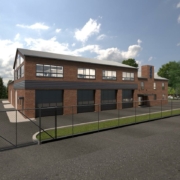Boost Your Business with a Commercial Solar Roof
Ever looked up at a commercial solar roof, marveling at the dance of sunlight across its panels, and wondered about the story behind it? How do these modern marvels transform sunlight into energy?
Picture this: a typical office building. But there’s something different – an army of glistening solar panels stands guard on its rooftop, capturing rays of sunshine and converting them to power. It’s not just another commercial property; it’s a beacon for sustainability.
We’re going to delve into that world – unmasking how commercial solar roofs work, why they matter more than ever in today’s climate-focused era, and what you need to know before installing one. We’ll also highlight some key benefits like significant cost savings and positive environmental impact.
The best part? This isn’t just about giving you relevant information. We’re handing over actionable insights that could really transform your game.
Table Of Contents:
- Understanding Commercial Solar Roofs
- The Benefits of Installing Commercial Solar Roofs
- Process Involved in Installing Commercial Solar Roofs
- Key Considerations Before Installing Commercial Solar Roofs
- Types and Designs of Commercial Solar Roofs
- Maintenance and Upkeep for Commercial Solar Roofs
- FAQs in Relation to Commercial Solar Roof
- Conclusion
Understanding Commercial Solar Roofs
Revolutionary solar panels installed on rooftop spaces to generate electricity for commercial buildings are transforming the world of commercial real estate. These systems, made up of solar panels strategically installed on rooftop spaces, harness the power of sunlight to generate electricity for commercial buildings.
The principle behind commercial solar roofs is straightforward yet revolutionary. They convert abundant and renewable sunlight into usable energy right where it’s needed most – at your business location. It’s like having your very own power plant perched atop your building.
The Basics of Commercial Solar Roofs
To start with, let’s demystify what makes these installations unique compared to other types of roofing solutions. Firstly, they are composed mainly from photovoltaic (PV) cells – tiny devices that capture light photons and turn them into electrical current.
This setup works seamlessly with existing grid connections but can also function independently if necessary – an advantage during blackouts or periods when utility prices surge high.
Beyond just being reliable sources of clean energy, there are many financial benefits associated with installing commercial solar roofs too. For over a decade now, SGK Contracting has been helping businesses maximize their energy savings through such installations; proving this isn’t merely theoretical jargon but rather practical reality experienced by countless enterprises worldwide.
Types Of Panels Used In Commercial Rooftops
Different businesses may opt for different types of panels based on specific needs and preferences ranging from budgetary constraints to architectural aesthetics. SGK offers varied choices while ensuring all deliver maximum efficiency regardless which you choose: proof why we’ve earned our stripes as industry leaders within this sphere. So whether you’re a small store owner considering adopting green practices or manage large-scale industrial complexes, remember – solar energy isn’t just for residential use. It’s a commercial powerhouse waiting to be tapped.
Embrace the Power of Commercial Solar Roofs: Transform your business with commercial solar roofs. Harness abundant sunlight, turn it into usable energy right at your location and enjoy a clean, renewable power source. With financial benefits aplenty and choices to fit every need, remember – this isn’t just for homes; it’s an untapped commercial powerhouse.
The Benefits of Installing Commercial Solar Roofs
As business owners, we’re constantly looking for approaches to cut expenses and improve our profitability. One such way is by installing commercial solar roofs. However, cost savings are not the only advantage of installing commercial solar roofs; there are numerous other benefits as well.
Financial Savings with Commercial Solar Roofs
Let’s start with the most tangible benefit: financial savings. By utilizing solar energy, you can drastically cut down on your electricity expenses. You might be surprised to learn that generous tax incentives for solar installation and lower energy costs can help offset much of your initial investment in a commercial solar roof.
You see, when sunlight hits your installed panels, they produce electricity which powers up your building while any excess power goes back into the grid – a process known as net metering – reducing or even eliminating your monthly utility rates.
Environmental Impact of Commercial Solar Roofs
Moving onto environmental benefits, installing rooftop solar panels helps decrease reliance on fossil fuels like natural gas. This results in reduced greenhouse gas emissions – something all planet-conscious businesses should aim for.
Solar panel installations use renewable sources like sunlight instead of traditional forms of electricity generated from burning natural gases that harm our environment. A double win if you ask us:
- Cut down on those pesky energy costs,
- Show Mother Earth some love at the same time.
We hope this section shines light (pun intended) on why going green with commercial rooftop solar isn’t just good; it’s brilliant.
Process Involved in Installing Commercial Solar Roofs
The process of installing a commercial solar roof is an intricate dance, expertly choreographed by the professionals. These solar contractors are the stars of our show.
The Role of Solar Contractors
Solar contractors play a vital role from start to finish. They kick off with site evaluation and energy consumption analysis. But that’s just for starters.
They also design custom solar panel layouts suited to your building’s needs, ensuring optimal sunlight absorption for maximum energy generation.
Cost Factors for Commercial Solar Installation
Cash might be king, but knowledge gives you power over your purse strings. When it comes to cost factors affecting installation, several elements come into play:
- The number and type of solar panels needed – this can affect both material costs and installation time.
- Rooftop condition – A sturdy roof makes for smoother sailing during install while one needing repair may add unexpected costs or delay work schedules.
Solar panel installation companies’ sophistication plays its part too: more advanced equipment could lead to higher initial outlay but pay dividends through increased efficiency.
The simple truth? The larger the project (i.e., more panels required), typically means longer timescales on-site – think weeks rather than days.
But don’t forget: there are savings on electricity bills as well as potential tax incentives waiting at the end.
So why not take control over where you get your power? Embrace renewable energy sources like sunshine because nothing beats turning rooftops into profit centers.
Key Considerations Before Installing Commercial Solar Roofs
Before investing in a commercial solar roof, it is important to assess your business’s energy needs and understand how this decision may impact costs. It’s not just about buying electricity from the sun – it’s also about understanding how this decision can affect your energy costs and overall investment.
Evaluating Your Business’s Energy Needs
The first step is to get a clear picture of your company’s energy needs. You need to analyze current power usage and consider future expansion plans. Will installing rooftop solar panels meet these demands? If yes, then it could be a good fit.
A commercial solar installation that is properly planned can decrease reliance on conventional energy sources and potentially save cash in the long haul. But remember, not all roofs are suitable for mounting systems; flat roofs might require more specific solutions. This guide on Solar Panel Installation Costs can give more insights into this aspect.
Understanding Tax Incentives and Financing Options
Beyond assessing suitability and utility, it’s crucial to understand tax incentives available for renewable energy projects like yours. Governments often provide generous credits that lower the actual cost of such initiatives significantly making them attractive investments.
You should also look at various financing options open for commercial property owners who want to go green with their buildings’ rooftops – they may turn out far cheaper than you think. Don’t forget: every PV project has its own payback period depending upon multiple factors so calculating potential savings versus costs vary from case-to-case basis but don’t let that deter you.
Types and Designs of Commercial Solar Roofs
Solar roofs are not a universal solution; they come in different shapes and forms, like business buildings. Just like commercial buildings, they come in various types and designs. Let’s take a closer look.
Different Types of Solar Panels for Commercial Use
The first thing to consider is the type of solar panel that best suits your needs. You have several options, from monocrystalline panels known for their efficiency and sleek design to polycrystalline panels valued for their affordability. Thin-film solar panels could be another option if you’re aiming at flexibility over performance.
In terms of power output, SGK Contracting, renowned in the industry, installs the same shingle used on residential projects onto commercial properties too. This decision isn’t random; it helps maintain consistency in aesthetic appeal while harnessing maximum energy.
The Importance of Mounting Systems in Commercial Solar Roofs
Apart from choosing your solar panel type, there’s also mounting systems to think about – these play an integral role when installing rooftop photovoltaic (PV) systems on flat or pitched roofs alike.
PV systems require sturdy mounts that can withstand all weather conditions without compromising roof integrity or blocking necessary maintenance access points. While it may seem minor compared to other elements such as PV panels themselves or inverters which convert DC electricity into usable AC form; yet a poorly designed mount system might lead towards inefficiency due to shading issues or worse still structural damage.
Maintenance and Upkeep for Commercial Solar Roofs
Proper maintenance is crucial to ensure the longevity of your commercial solar roof. It’s not just about cleaning the panels; it involves inspecting mounting systems, checking connections, and monitoring energy output.
Regular Cleaning Boosts Efficiency
Dust and debris on your rooftop solar panels can block sunlight, reducing their efficiency. Regular cleaning helps maintain optimal electricity generation from your PV installation. But remember – safety first. Use professional services if you’re unsure about how to clean them properly.
In-Depth Inspections Are Essential
An annual inspection by a certified technician ensures that everything is working as it should be in terms of electrical connections and structural integrity. They’ll examine for any harm or deterioration that could influence the operation of your system.
Solar Energy Monitoring Matters
Keeping track of how much power you’re generating lets you spot issues early on. If there’s a sudden drop in solar output without any apparent reason like cloudy weather, it may signal an issue with part of your system needing immediate attention.
SGK Contracting, our preferred partner known for its alternative mounting systems tailored for commercial projects’ architectural aesthetics, provides detailed monitoring solutions alongside its installations.
With proper care, these high-performing renewable energy sources will continue saving money on utility bills while contributing positively towards environmental sustainability goals.
FAQs in Relation to Commercial Solar Roof
What is the best solar system for commercial use?
The best choice often boils down to your specific needs. However, photovoltaic (PV) systems are popular due to their efficiency and reliability.
What size is commercial rooftop solar?
The size of a commercial rooftop solar installation depends on factors like energy demand and roof space. Typically, they range from 50kW to several megawatts.
What is the downside of rooftop solar?
Rooftop solar can have high upfront costs and may require structural modifications. Also, performance can be affected by shading or bad weather.
Is there a difference between residential and commercial solar panels?
Yes, although both types capture sunlight similarly, commercial panels tend to be larger in capacity because businesses typically consume more power than homes do.
Conclusion
So, you’ve now seen the light when it comes to commercial solar roofs. Harnessing that sun power is more than just an environmental statement; it’s a smart business move.
Your takeaway? Understanding your energy needs and exploring tax incentives can make this venture affordable. Bear in mind, distinct solar panels don’t all measure up – opting for the right one to suit your place is essential.
Maintenance isn’t as daunting as it sounds either, but don’t forget about proper installation – a good contractor makes all the difference.
The bottom line? A commercial solar roof isn’t just viable—it’s valuable. So let’s start capturing those rays and saving some green—in both senses of the word!









